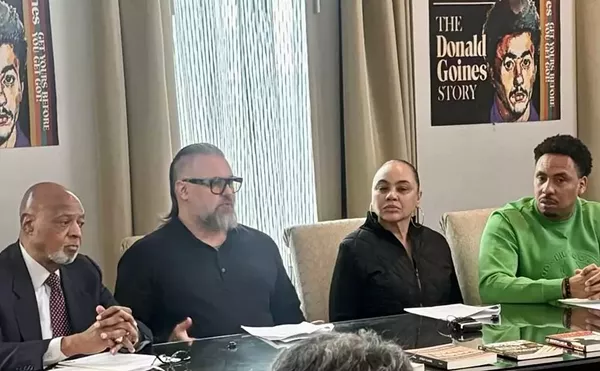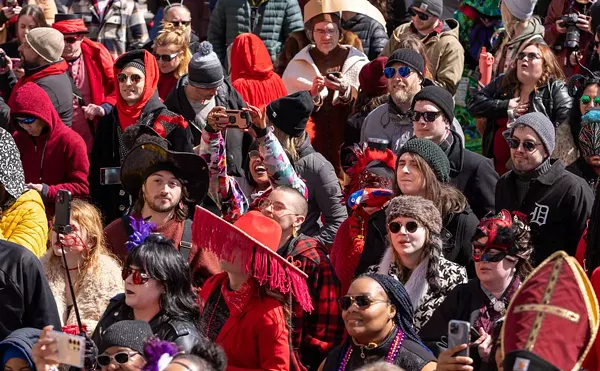When you think about Robin Hood, words like rousing, swashbuckling and derring-do come to mind. Not stoic, serious-minded and listless.
Turning the nearly 1,000-year-old legend into a gritty, pseudo-historical drama, director Ridley Scott and screenwriter Brian Helgeland have fashioned a plausibly medieval, politically contemporary tale that is thankfully devoid of kitsch or melodrama. Unfortunately, Robin Hood is equally devoid of magic, adventure or emotional engagement. And instead of fashioning a believable champion for the poor, Robin (Russell Crowe) is depicted as just another hero saddled with daddy issues.
In an attempt to tell the tale before the tale we already know, Robin Hood takes its cue from Braveheart and Elizabeth, tracking Robin Longstride's morally ambivalent tenure in the crusade of Richard the Lion-Hearted (Danny Huston) and his subsequent return to England. Unwittingly pulled into the backstabbing intrigue of the English throne, Robin and his compadres (Little John, Will Scarlett et al.) end up players in a plot to overthrow bad King John (Oscar Isaac). Manipulated by the treacherous Sir Godfrey (Mark Strong), England's northern territories have been incited to rebel against the venal and ineffectual John while the French quietly prepare to invade and conquer the divided kingdom.
After a well-staged opening castle siege, Scott spends nearly an hour setting up his convoluted yet simple-minded tale, with Robin assuming the identity of a fallen knight and heading to Nottingham, where he falls for the dead man's wife, Marion Locksley (Cate Blanchett). Despite all this running time, however, we learn very little of our arrow-slinging hero — except that he's troubled by the killing of Muslims, believes in income redistribution, and longs for his papa. These are unabashedly liberal-Dem ideas, but the film misses the opportunity to convincingly remind Tea Party activists of the endless ways the rich and powerful exploit the hell out of the poor and the weak. I mean, I'm all for exploring and expanding the mythical landscape, but how do you make a Robin Hood movie that has no regard for the beleaguered poor? Shouldn't we see Robin's growing commitment to the actions that would define his legend? Instead, Scott suggests that Longstride was an early advocate for the Magna Carta. Even more weirdly, the film's final battle (which comes too late) deliberately recalls the American invasion of Omaha Beach. Huh?
Time and again, movies that attempt to wedge historical accuracy into mythical heroism (King Arthur, Troy) end up ruining the character's mystique and cheapening the wonderful lies that captured our imagination. Ridley Scott's obsessions with myth and warfare, have mostly been well-decorated misfires (1492: Conquest of Paradise, Kingdom of Heaven, American Gangster), with only Gladiator finding the right mix of melodramatic weight and pulse-pounding action.
In Robin Hood, neither Scott's direction nor Helgeland's script has the poetry to engage or thrill. Sweat and grime have become more important than spirit and soul, and armchair psychiatry has replaced chivalrous legend. There's little doubt that the film is a triumph of costume design and art direction, and Scott's images are truly ravishing, with few discernible moments of CGI interference. But it's all so inert. Even a scene where peasants, mostly women and children, are locked in a burning barn lacks drama or suspense.
Strangely, it's Robin Hood's end credits, with their hand-painted animation style, that pop with energy and verve, finally delivering a few rousing moments for the quickly departing audience.
Jeff Meyers writes about film for Metro Times. Send comments to [email protected].






